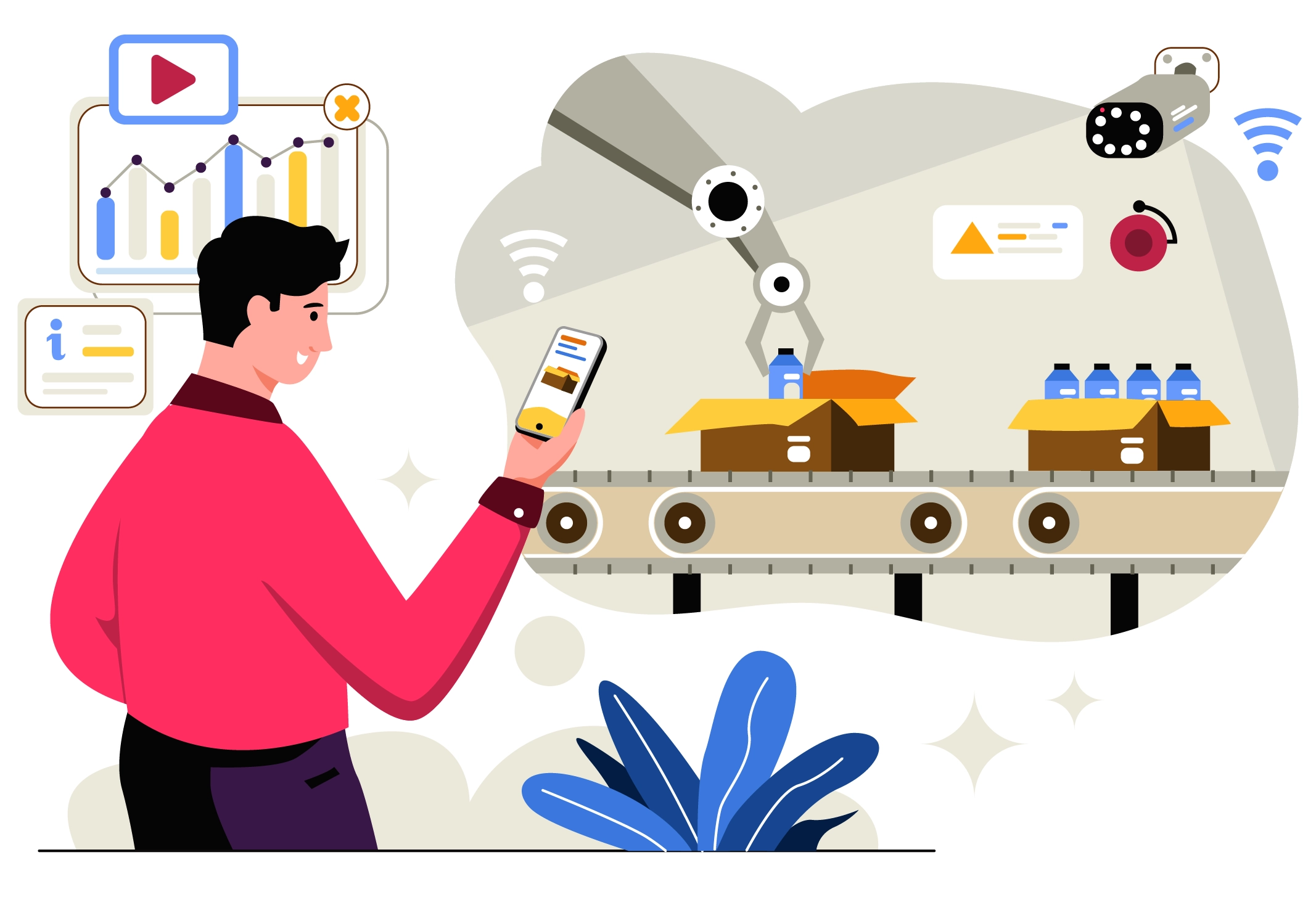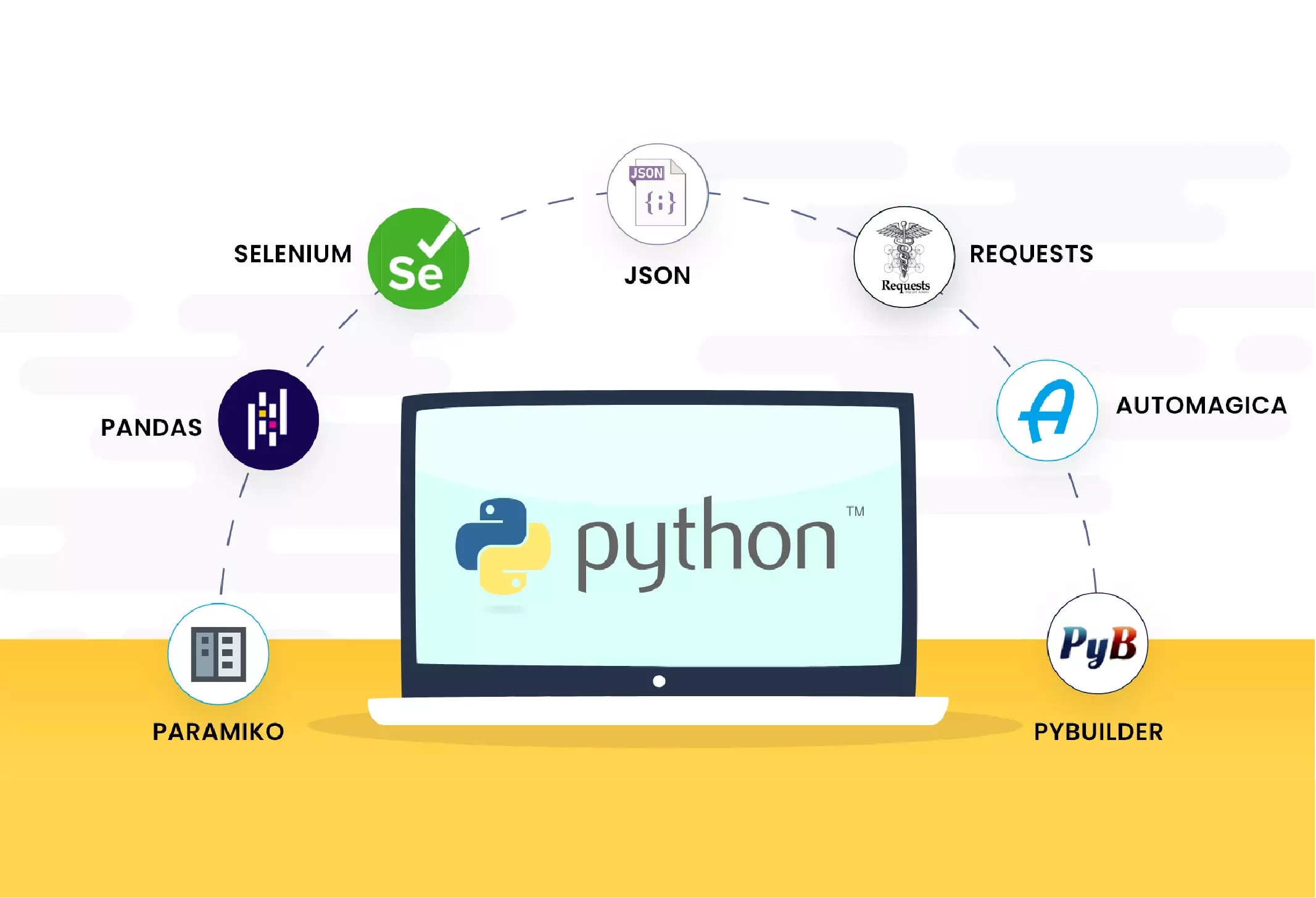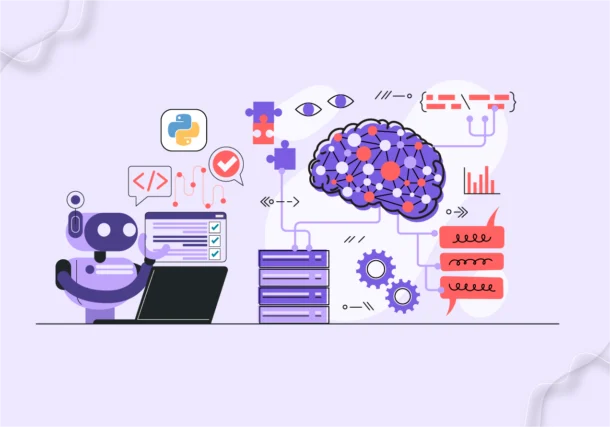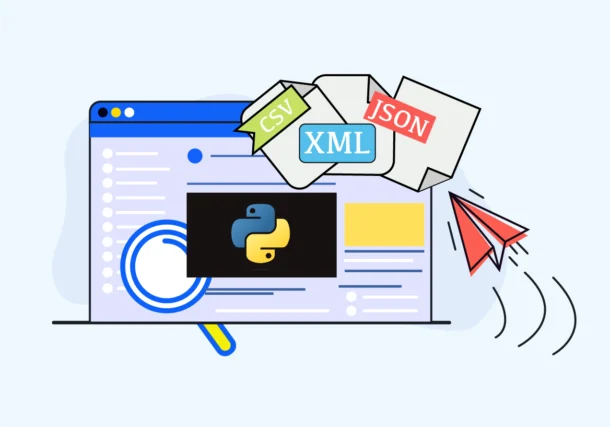Transmuting Business Operations Through Automation by Liberating Python
Renowned for its ease of use and adaptability, Python has become a potent programming language in a number of sectors. It is the best option for automation because of its large library and strong community, especially in corporate settings where productivity and efficiency are crucial.
Automation is a must in today’s hectic corporate environment, not a luxury. Automating time-consuming and repetitive operations frees up corporate resources for strategic initiatives, mistake reduction, and improved operational efficiency. Automation may drastically change how firms run, resulting in cost savings and allowing for scalable expansion. Examples of this include data input, report generation, and complicated workflows.

The main characteristics of Python that make it suited for automation will be covered in detail, along with a list of necessary tools and modules and real-world examples of Python-driven automation in operation. We will also explore real-world case studies and best practices, showing how companies have effectively used Python for automation to produce outstanding outcomes.
This blog offers helpful insights and useful knowledge to help you leverage the potential of Python for automation, whether you are a seasoned developer trying to improve your automation abilities or a corporate executive seeking creative ideas to streamline operations. After reading this tutorial, you should have a firm grasp on how to apply Python-based automation, get beyond typical obstacles, and grow your company’s productivity and success to new heights.
Mastering Python for Automation; Its Capabilities, Advantages, and Business Use Cases
Python is one of the most effective and flexible programming languages available, especially for automation. Both novice and seasoned developers may use it because of its readability and simplicity. Python’s vast library and frameworks, including Pandas, NumPy, and Selenium, allow for the automation of a wide range of operations, including web scraping, browser automation, and data processing. This adaptability enables companies to improve overall productivity, minimize manual labor, and simplify processes.
Python’s strong community support and plenty of resources make it a very advantageous choice for automation. Given that Python is open-source, a plethora of tutorials, forums, and documentation are accessible, facilitating the process of troubleshooting and identifying solutions. Python’s cross-platform interoperability also makes it possible for automation scripts to function without interruption on many operating systems, increasing its usefulness in a variety of corporate settings.

Businesses often face the challenge of deciding which tasks to automate. A common question arises: “How do we identify the best processes in business to automate with Python? The answer lies in evaluating tasks that are repetitive, time-consuming, and prone to human error. For instance, automating data entry, report generation, or customer support can significantly boost productivity and accuracy.
Python’s ability to interface with many systems and technologies is an important factor for automation efficacy. Python is capable of handling any task, including integrating with online applications, working with databases, and connecting to APIs. Businesses may develop complete automation solutions that complement their current infrastructure due to this compatibility.
Businesses may reap significant advantages from learning Python for automation. Companies may increase productivity, save operating expenses, and maintain their competitiveness in the rapidly changing digital market by utilizing Python’s advantages. A calculated step toward long-term success is to investigate Python’s potential for automating different business operations.
Essential Python Libraries for Automation: Tools, Features, and Use Cases
Python’s strong libraries and tools that make difficult jobs easier to do are the main reasons for its prominence in the automation field. Python for automation has several robust libraries that may be used to automate monotonous work, increase productivity, and lower the risk of human mistakes if you’ve ever pondered how to improve the efficiency of your business processes. Let’s examine the characteristics and advantages of some of the most widely used Python automation modules.
One popular technology for automating web browser interactions is called Selenium. You can simulate user behaviors using Selenium, such as surfing online sites, clicking buttons, and completing forms. For web testing and online data scraping, it’s really helpful. When you don’t have to manually test your web apps or extract big datasets, just think of the time you will save.

PyAutoGUI makes automating GUI interactions a breeze. PyAutoGUI has you covered whether you need to click buttons, move the mouse, or enter keyboard commands. This program is perfect for situations when you need to build bots, automate repetitive processes, or automate desktop apps. Consider automating a series of steps in a software program, for instance, to expedite data-entering procedures.
A robust library for submitting HTTP requests is called Request. For automating interactions with online services and APIs, this is the preferred tool. Interacting with RESTful APIs is a snap when you use Requests to send GET, POST, PUT, and DELETE requests. This may be very helpful when connecting several software programs, retrieving data from outside sources, or automating the submission of data.
With the help of these libraries, you may easily automate a variety of activities, each bringing its own skills to the table. Python for automation tools provides a flexible way to improve your company processes, whether you want to automate desktop apps, expedite web testing, or connect online services. What automation projects are you eager to use Python for? There are countless options, and they might have a revolutionary effect on your company.
Python Automation in Business Processes: Setup, Success Stories, and Best Practices
Although using Python for automation might be intimidating at first, it can be a game-changer if done correctly guided. Here’s a step-by-step tutorial to get you going. Make sure Python is installed on your computer first. Next, determine whether internal company processes—like data input, report creation, or customer service—can be automated. Select the Python libraries that are relevant to your requirements, such as Pandas for data processing or Selenium for web automation.
Success examples from the real world illustrate how transformational Python automation can be. For example, Spotify leverages Python heavily for backend services and data analysis. Spotify can offer individualized music suggestions and enhance user experiences by automating data collecting and processing procedures. In the saturated music-streaming business, this has helped the company stay competitive.
Another instance would be Google, which uses Python automation for a range of automated functions, such as monitoring and system management. By automating these procedures, Google makes sure that its services are dependable and effective, processing billions of search requests and data processing jobs every day with minimal downtime.
Netflix is yet another noteworthy instance. Their recommendation systems and content customization, which are essential for retaining users, are written in Python. Netflix can now handle enormous volumes of data quickly and effectively because of automation using Python. This allows Netflix to provide viewers with highly personalized viewing recommendations that increase their pleasure and loyalty.
It’s critical to adhere to recommended practices while creating Python and automation. Automate basic operations first, then work your way up to more intricate ones. To make sure your scripts function as intended, always test them properly and keep complete records. To make sure the transition goes well, it’s also essential to teach your staff about the new automated operations.
Overcoming Common Challenges in Python Automation: Strategies and Maintenance Solutions
Though there are drawbacks, implementing Python automation may completely transform corporate processes. Including automation in current systems is a frequent challenge. An extensive redesign of the current infrastructure may be necessary if new automated processes are incompatible with legacy systems. Employing a staged integration strategy, beginning with less important systems to guarantee seamless transitions and reduce interruptions, is how firms may get around issues.
Making sure automated tasks are accurate and dependable is another difficulty. Unexpected inputs or alterations in the surroundings can occasionally cause automated systems to fail. To identify and address problems as soon as possible, businesses must have strong error-handling and monitoring systems in place. It is essential to update and maintain the automation scripts regularly to keep efficiency and adjust to changes.
Another big worry is security. Since automated systems frequently handle sensitive data, attackers may target them. Firm security measures, such as encryption, access limits, and recurring security audits, are critical for organizations to reduce this risk. Another way to manage vulnerabilities is to make sure that libraries and automation tools are routinely updated to the most recent versions.
Solving these problems is crucial for companies that want to maintain their competitiveness and attain operational excellence. Businesses may fully utilize automation in Python by implementing best practices and utilizing appropriate tactics. Working with professionals like Pattem Digital can provide you with the direction and assistance you need to make sure your company benefits from Python automation.
Maximizing Business Success with Python Automation
Aside from increasing productivity and optimizing processes, using Python for business automation may also save expenses and reduce mistakes. To be innovative and competitive, businesses are urged to investigate and implement Python automation. Businesses may boost their operational skills and realize notable productivity improvements by incorporating Python into their operations. With its experience and customized solutions, Pattem Digital is prepared to support companies on this revolutionary journey, guaranteeing a smooth implementation and optimal results with Python development services. To maximize Python automation’s potential and advance your company’s success, use Pattem Digital.





